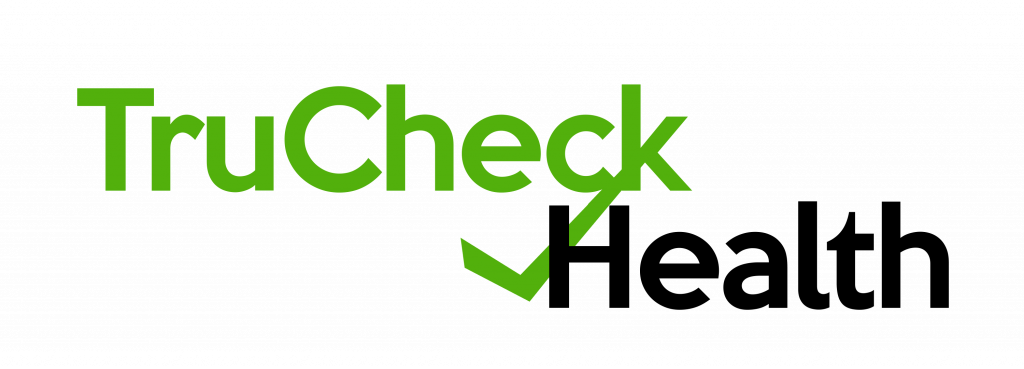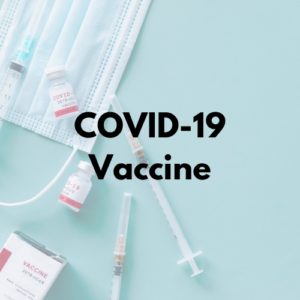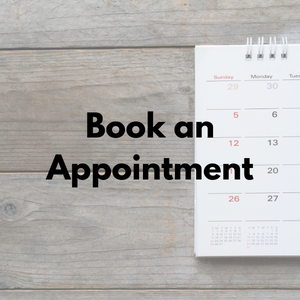Let's Keep Things Going!
TruCheck Health offers comprehensive mobile and onsite COVID-19 and Flu testing for you. Keeping everyone safe, we offer mobile and onsite COVID-19 and Flu vaccination services.
Delivering the gold-standard in workplace solutions, we are here to establish a comprehensive program for your needs.
We are here to ensure your workplace is safe, minimize health risks through vaccination protocols, and restore business confidence through a customized program.
What Test Do I Need?
COVID-19 Tests
The FDA has EUA-Approved three types of COVID-19 Tests:
RT NAAT-PCR Test
Nasal swab test able to detect small concentrations of virus.
Results in 48-72 hours.
Not for Travel.
Antigen Test
Nasal swab test that determines active infections.
Results in 48-72 hours.
Rapid Antibody Test
«Finger Prick» Blood Test to detect presence of antibody.
Tests for past infection and immune status.
Antibody test does not show current infection and can’t be used to diagnose.
Results in 2 hours or less.
AirReady Travel
RT-PCR-NAAT
Nasal swab test able to detect small concentration of virus.
Expedited results in 24 hours.
Rapid RT-PCR-NAAT
Nasal swab test able to detect small concentration of virus.
Results in 1-2 hours.
To maximize accuracy, the best time to take a test:
- 2 days after EXPOSURE
- 2 days after onset of SYMPTOMS
Who Should Get Tested?
Work & School
Companies and schools that want turnkey lab solutions for safe operations. We provide trained medical staff and end-to-end resources for a comprehensive testing and vaccination program. We want you to get back to what you do best and reopen safely.
Travel
Most airlines require a COVID test before you are allowed to board. Please check with your airlines regarding test type and when you should get tested.
Chronic Condition
People with chronic medical conditions are most susceptible to contracting the COVID-19 virus. Getting yourself tested and staying protected is the only guard you have.
Loved Ones
You should get tested if you were in contact with a COVID-positive person, if you are suspicious of being sick, or after you have recovered from COVID to ensure the safety of your family and friends.
Senior Nursing Facilities
Our expert medical technicians provide on-site screening and will conduct COVID-189 testing, antibody testing and temperature testing of all your patients and staff.
Asymptomatic
With time, more and more people are being tested asymptomatic, who can unknowingly spread the virus. Get yourself tested without waiting for the symptoms to appear.
Mobile Services - Come to Me!
We bring everything to you. TruCheck Health provides you with the turnkey healthcare solutions for your needs. Our trained medical staff can be onsite to offer COVID-19 testing and vaccination services. We operate according to CLIA, CDC, and FDA standards so you can conduct your business services safely and with peace of mind. Recurring testing programs can be customized on weekly, bi-weekly, and monthly timelines. We offer single day testing with 24-hour results. Our process is simple and efficient.
Ask us about our TruCheck Health Safe-Workplace Certification Program. Let us help you prevent and mitigate any risks and help restore your business continuity and customer confidence.
We will customize an action plan that is right for you.
COVID-19 Vaccinations
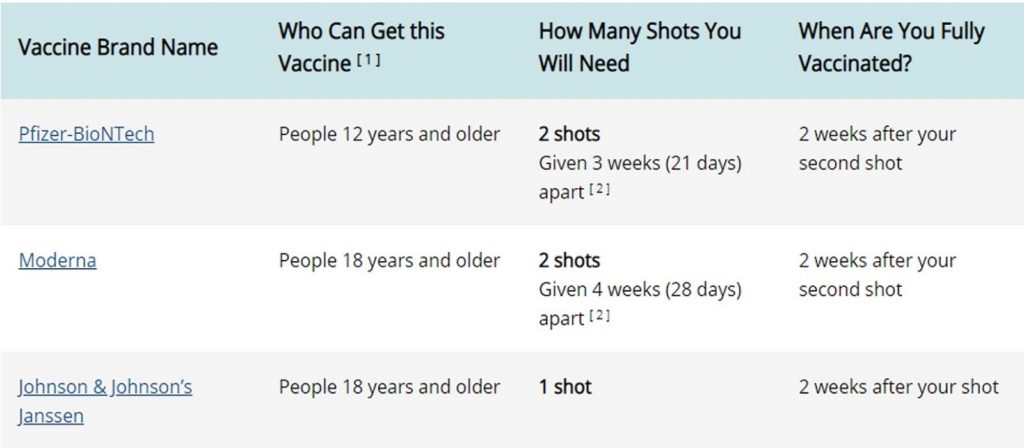
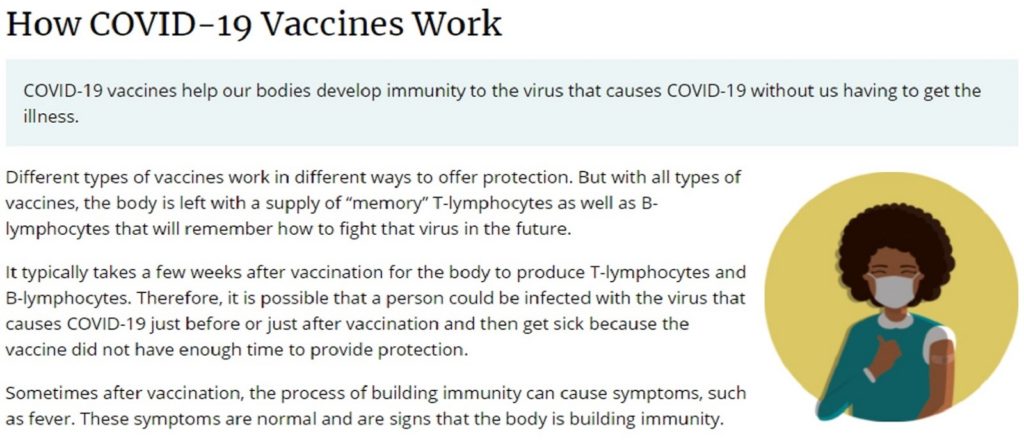
According to FDA and CDC guidelines, TruCheck Health is offering 3rd vaccination doses and booster shots.
Vaccinations can be given onsite through our mobile services.
Walk-in appointments are available!
Can’t schedule an appointment? In a hurry? Have a surprise break at work?
Please walk-in to our location at The Market Place vaccination site.
Travel Certification
TruCheck Health designed our COVID Air Ready Program to deliver results within 24 hours, as required by most airlines and travel destinations. We have collaborated with travel experts and IATA partner companies to develop a Travel Screening Service through a single interface, giving you the reassurance you need.
Frequently Asked Questions
Diagnostic Testing (PCR and related methods)
Yes. The PCR and other nucleic acid amplification tests detect the SARS-CoV-2 virus and are used to diagnose acute infections. If you have any symptoms concerning for COVID-19 (fever, feeling short of breath, cough, muscle pain, sore throat, loss of taste or smell, new diarrhea) you should talk to your provider about getting PCR testing.
Travel requirements vary by destination. All of the testing methods used by TruCheck Health are nucleic acid amplification tests (NAATs) and test reports include language indicating the testing method: either RT-PCR or NAAT is explicitly mentioned. Though «RT-PCR» is prominently displayed in most countries’ requirements, many destinations require a NAAT method rather than RT-PCR specifically. It is the traveler’s responsibility to determine the specific requirements of their destination. Some destinations (such as India) specifically require RT-PCR testing. We cannot guarantee that a specific method such as RT-PCR will be performed because of our need to perform testing on multiple instruments for the fastest possible turnaround times. Our laboratory will not repeat testing with a separate testing method for non-medical reasons.
A positive PCR/NAAT result indicates that viral nucleic acid is present in the sample. Given both the potential severity of the infection and the potential for rapid spread, positive results should generally be treated as if the someone is infectious, with isolation to prevent spread and clinical care if symptoms warrant it. Individuals may test positive for weeks or even months after their first positive test even though they are not infectious. Repeat testing after the first positive test is generally not indicated.
Many PCR tests target two or more distinct gene regions of the virus. When all targets are not detected above the threshold for positivity, the test is resulted as inconclusive. This typically happens when a low amount of viral nucleic acid is present. This should be treated as a presumptive positive and guidelines for isolation and clinical management based on a positive test should be followed.
Yes. CLIA certification is a requirement for clinical laboratories providing diagnostic testing.
Yes. The tests performed by the TruCheck Health have been granted Emergency Use Authorization (EUA) by the FDA.
Antibody Testing (Serology Testing)
- An antibody is protein that is a normal part of the immune response to many types of infections.
- Our bodies develop antibodies in the days and weeks after being infected.
- Antibodies are specific for different infections – as part of the immune response, the antibody attaches to specific parts of the germ. For example, there are antibodies for influenza and different antibodies for hepatitis C.
- An antibody test is a type of blood test to see if you have:
- Any antibodies for an infection (yes/no result also known as a “qualitative” test), or
- How much antibody (a “quantitative” test)
- These tests are also referred to as “serological” tests.
- The SARS-CoV-2 Nucleocapsid Antibody, IgG test is very sensitive – validation by our laboratory showed that by fourteen days after a positive acute COVID-19 diagnostic test (PCR) 100% of patients have a positive antibody test. It is very specific – it will be negative in >99.9% of people who did not have an infection. However, positivity likely declines over time, so distant past infections may not be detected by the assay.
- The SARS-CoV-2 Spike Antibody, IgG test is also very sensitive. Information provided by the assay manfucturer (Abbott) indicates that 98.1% of the patients who test postive with a COVID-19 diagnostic test will have a positive spike antibody test at 15 days after the onset of symptoms.
- One challenge with these antibody tests is that due to the overall low number of people with COVID-19 in the community, it is possible to have a “false positive” result. This means the test will be positive when the person never was infected. This is true for all antibody tests, including tests that perform well like those used at TruCheck Health.
- In some cases, immunocompromised patients may have a negative test result despite prior COVID-19 infection due to lack of or delay in development of detectable antibodies.
- No. The antibody tests are not used to diagnose acute infections. If you have any symptoms concerning for COVID-19 (fever, feeling short of breath, cough, muscle pain, sore throat, loss of taste or smell, new diarrhea) you should talk to your provider about getting a different test (usually a PCR) that looks for the virus itself.
- Because antibodies do not develop days to weeks after infection, we cannot depend on them for diagnosis.
- The antibody test can confirm that you had a past COVID-19 infection if you had COVID-19 symptoms (fever, tiredness, dry cough, aches and pains, sore throat, diarrhea) more than two weeks ago but were not able to access diagnostic PCR testing to confirm the infection.
- If your test is negative (and you have no symptoms), it means you likely have not had a COVID-19 infection and lets you know that you have no immunity to SARS-CoV-2.
- If your test is positive, it is likely that you were infected at some point in the last several months, but the result may also be a “false positive” (discussed above). This means that result is positive even though you were not exposed to the virus.
- This type of test will help public health departments and researchers learn more about how many people in a population have been exposed or infected.
- If you are interested in getting tested, you should discuss with your provider.
- We do not yet know if a positive test result means that a person is immune, and if it does, for how long immunity might last. We hope to learn more about these questions in the coming months.
- If your test is positive, you should continue to follow public health recommendations on social/physical distancing, hand hygiene, environmental cleaning, staying home when ill and mask use.
- Please be sure to bring the following to your vaccination appointment:
- An ID or driver’s license
- Proof of eligibility for the vaccine (see below)
- Acceptable Documents for Proof Eligibility (Choose one)
- Employee badge with photo
- Professional license AND a photo ID
- Signed letter from employer on facility letterhead AND a photo ID
- Payment stub with your name AND a photo ID
- If this appointment is for your second dose: (Choose one)
- Vaccine record card AND a photo ID
- Second dose referral letter AND a photo ID
Yes. Until we know more about the level of protection from vaccines in real-world situations, facial coverings and social distancing will continue to be very important to prevent spread of the virus. Also, while the two current vaccines are very effective, no vaccine can protect 100% of people. Some people who get the vaccine will not generate an immune response so it will be important to continue wearing a face covering and practicing social distancing until we reach herd immunity from widespread vaccination.
The risk of exposure to COVID-19 in the workplace depends on the likelihood of coming within 6-feet of others, in having frequent physical contact with people who may be infected with COVID-19, and through contact with contaminated surfaces and objects.
Employers and managers, in consultation with workers and Professional Screening Companies, should carry out and regularly update the risk assessment for work-related exposure to COVID-19, preferably with the support of TruCheck Health Services.
Thermal screening at the workplace can be considered part of a package of measures to prevent and control COVID-19 at the workplace. Relying on temperature screening alone will not stop the spread of COVID-19 at work. Workers should be encouraged to self-monitor their health, possibly with the use of questionnaires, and take their own temperature regularly at home. Workplaces should adopt “stay at home if unwell” and flexible sick leave policies to discourage workers with symptoms consistent with COVID-19 from coming to the workplaces.
There should be fresh, clean air in all workplaces. For jobs and work tasks at medium or high risk of exposure, World Health Organization and CDC recommends an increased ventilation rate through natural aeration or artificial ventilation, preferably without re-circulation of the air. In case of air recirculation, filters should be cleaned regularly.
Please contact us at sales@truchecktest.com for fees and scheduling tests.
Join Our Email Mailing List
Sign up here to receive email updates and details related to our offerings and COVID-19 related inquiries.
